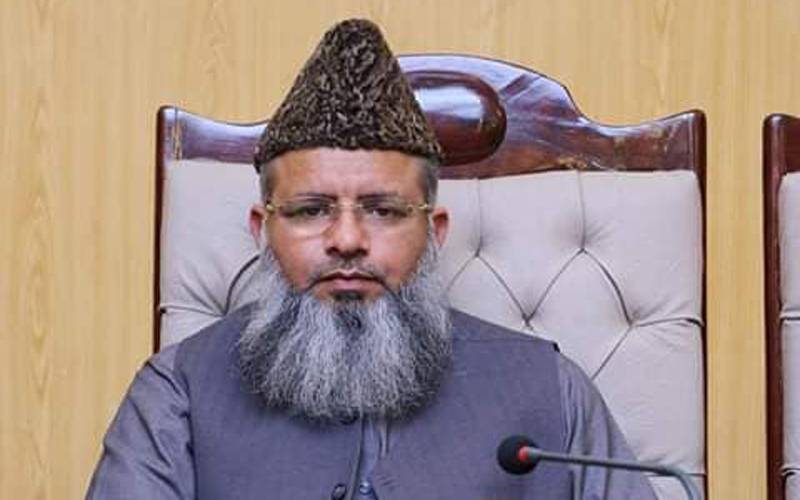There was a Typing Mistake in the Statement, VPN Was Not Declared Unlawful or Forbidden, Allama Raghib Naeemi
Emphasizes that social media should serve as a platform to promote Islamic values & ensure national security & integrity
ISLAMABAD ( WEB
There was a Typing Mistake in the Statement, VPN Was Not Declared Unlawful or Forbidden, Says Chairman of Islamic Ideological Council, Allama Raghib Naeemi
Chairman of the Islamic Ideological Council (CII), Allama Raghib Naeemi, has stated that there was a typing mistake in his statement regarding Virtual Private Networks (VPNs), and that VPNs were not declared unlawful or forbidden. While addressing a press conference in Islamabad, he clarified that social media is the most effective means of expressing thoughts and opinions, which can be used for both good and bad purposes.
“It must not be misused for blasphemy, sectarianism, or extremist activities,” he asserted.
Dr Naeemi elaborated that while VPNs and similar technologies were not inherently un-Islamic, their usage must conform to ethical and lawful guidelines. “The use of registered VPNs is permissible under Shariah,” he clarified.
He emphasized that it is mandatory for Muslims to use social media in accordance with Islamic teachings. Social media should be used for promoting Islamic values, moral and character development, education, encouragement, business purposes, and other lawful objectives. He added that social media should not be used for falsehood, deception, blasphemy, unethical purposes, disorder, sectarianism, extremism, or any other illegal or unlawful objectives.
Allama Raghib Naeemi further explained that it is commonly observed that VPN apps are used during internet activities for various purposes. He clarified that the VPN app itself is not unlawful or forbidden; rather, its usage depends on whether it is used appropriately or inappropriately. He stressed that activities like blasphemy, religious disrespect, insecurity, anarchy, and spreading material against national security would be deemed unlawful in Islamic terms, and the government must take steps to prevent such misuse.
The CII Chairman mentioned that using VPN for legitimate purposes, such as communication through apps, education, and business, is permissible and legal. He emphasized that people should comply with governmental regulations, as the government has initiated VPN registration. He recommended prioritizing the use of registered VPNs while avoiding unregistered ones. He added that an Islamic government has the responsibility to make it easier for its citizens to achieve legitimate purposes and prevent the misuse of social media for unlawful objectives.
Allama Raghib Naeemi also called for all government agencies related to media and social media to play an active role in monitoring platforms and apps, in line with Article 19 of the Constitution, which grants every citizen the right to freedom of speech, expression, media freedom, and access to information, within legal boundaries ensuring Islam’s sanctity, national integrity, public order, and civilization.
He stated that the importance of social media and modern technological tools cannot be denied, and their positive use has become a crucial necessity. Therefore, administrative measures must be taken to prevent their misuse. The council believes that imposing a ban on these modern tools is not the solution; rather, efforts should also be made to enable their positive use or find appropriate alternatives.
Allama Raghib Naeemi added that the council has decided to conduct further research on this subject from a Sharia perspective, in consultation with experts. In response to a question, he clarified that the council follows a specific procedure for its work, and the topic of VPN was included in the council’s first recommendations. Regarding the decision of the Lahore High Court on March 28, 2023, he said that actions were taken in light of that ruling. He concluded by stating that any matter brought to the council legally is reviewed and addressed accordingly.
When asked about the ban on VPNs and the Islamic Ideological Council’s stance on it, he reiterated that there was a typing error in their statement where a word was missing, and clarified that VPNs were never declared haram (forbidden) or unlawful in Sharia.

